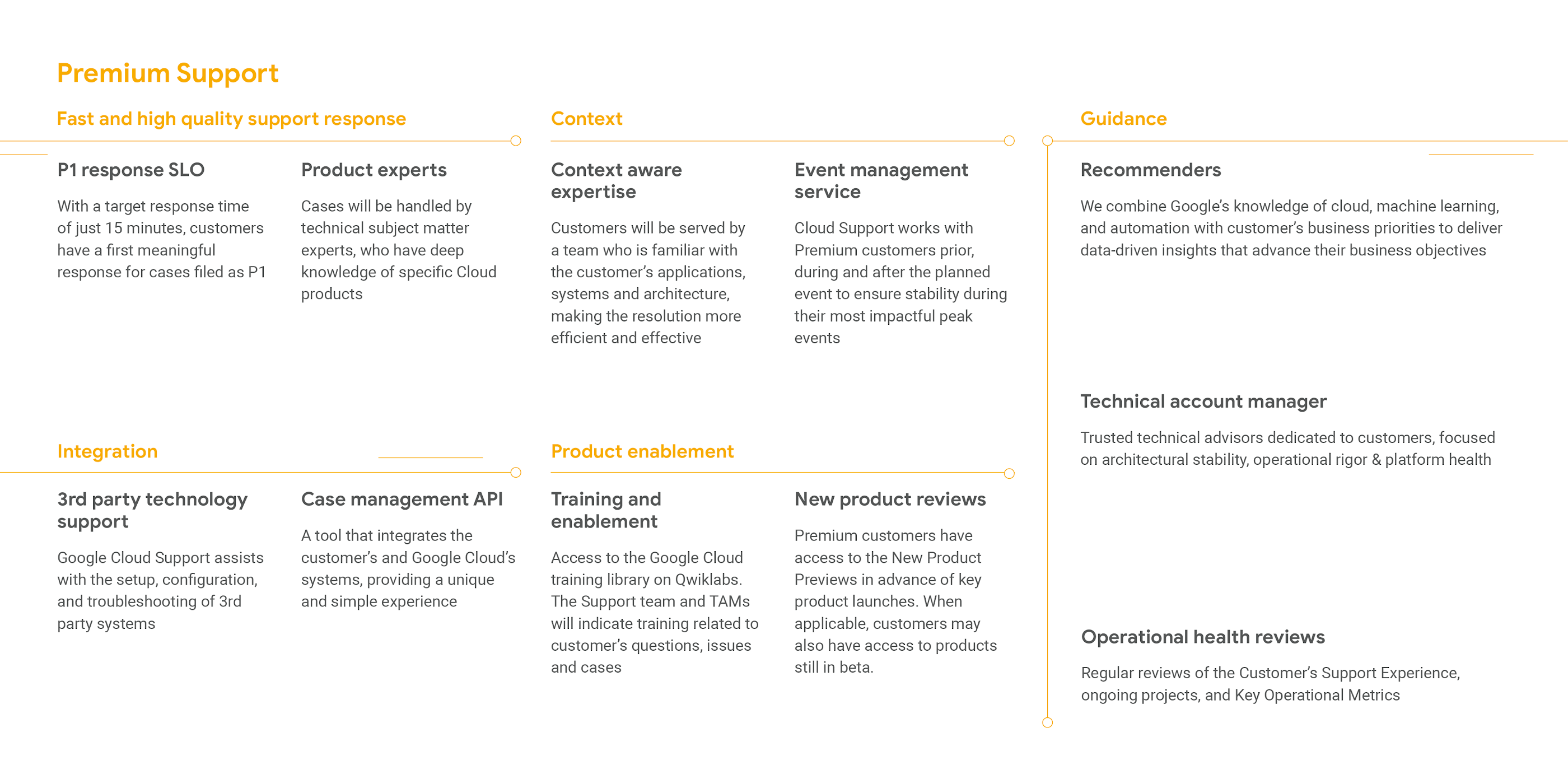
Google Cloud today announced the launch of its premium support plans for enterprise and mission-critical needs. This new plan brings Google’s support offerings for the Google Cloud Platform (GCP) in line with its premium G Suite support options.
“Premium Support has been designed to better meet the needs of our customers running modern cloud technology,” writes Google’s VP of Cloud Support, Atul Nanda. “And we’ve made investments to improve the customer experience, with an updated support model that is proactive, unified, centered around the customer, and flexible to meet the differing needs of their businesses.”
The premium plan, which Google will charge for based on your monthly GCP spent (with a minimum cost of what looks to be about $12,500 per month), promises a 15-minute response time for P1 cases. Those are situations when an application or infrastructure is unusable in production. Other features include training and new product reviews, as well as support for troubleshooting third-party systems.
 Google stresses that the team that will answer a company’s calls will consist of “content-aware experts” that know your application stack and architecture. As with similar premium plans from other vendors, enterprises will have a Technical Account manager who works through these issues with them. Companies with global operations can opt to have (and pay for) technical account managers available during business hours in multiple regions.
Google stresses that the team that will answer a company’s calls will consist of “content-aware experts” that know your application stack and architecture. As with similar premium plans from other vendors, enterprises will have a Technical Account manager who works through these issues with them. Companies with global operations can opt to have (and pay for) technical account managers available during business hours in multiple regions.
The idea here, however, is also to give GCP users more proactive support, which will soon include a site reliability engineering engagement, for example, that is meant to help customers “design a wrapper of supportability around the Google Cloud customer projects that have the highest sensitivity to downtime.” The Support team will also work with customers to get them ready for special events like Black Friday or other peak events in their industry. Over time, the company plans to add more features and additional support plans.
As with virtually all of Google’s recent cloud moves, today’s announcement is part of the company’s efforts to get more enterprises to move to its cloud. Earlier this week, for example, it launched support for IBM’s Power Systems architecture, as well as new infrastructure solutions for retailers. In addition, it also acquired no-code service AppSheet.

